第20章 ON THE LORD BACON(1)
Not long since the trite and frivolous question following was debated in a very polite and learned company,viz.,Who was the greatest man,Caesar,Alexander,Tamerlane,Cromwell,&c.?
Somebody answered that Sir Isaac Newton excelled them all.The gentleman's assertion was very just;for if true greatness consists in having received from heaven a mighty genius,and in having employed it to enlighten our own mind and that of others,a man like Sir Isaac Newton,whose equal is hardly found in a thousand years,is the truly great man.And those politicians and conquerors (and all ages produce some)were generally so many illustrious wicked men.That man claims our respect who commands over the minds of the rest of the world by the force of truth,not those who enslave their fellow-creatures:he who is acquainted with the universe,not they who deface it.
Since,therefore,you desire me to give you an account of the famous personages whom England has given birth to,I shall begin with Lord Bacon,Mr.Locke,Sir Isaac Newton,&c.Afterwards the warriors and Ministers of State shall come in their order.
I must begin with the celebrated Viscount Verulam,known in Europe by the name of Bacon,which was that of his family.His father had been Lord Keeper,and himself was a great many years Lord Chancellor under King James I.Nevertheless,amidst the intrigues of a Court,and the affairs of his exalted employment,which alone were enough to engross his whole time,he yet found so much leisure for study as to make himself a great philosopher,a good historian,and an elegant writer;and a still more surprising circumstance is that he lived in an age in which the art of writing justly and elegantly was little known,much less true philosophy.Lord Bacon,as is the fate of man,was more esteemed after his death than in his lifetime.His enemies were in the British Court,and his admirers were foreigners.
When the Marquis d'Effiat attended in England upon the Princess Henrietta Maria,daughter to Henry IV.,whom King Charles I.had married,that Minister went and visited the Lord Bacon,who,being at that time sick in his bed,received him with the curtains shut close."You resemble the angels,"says the Marquis to him;"we hear those beings spoken of perpetually,and we believe them superior to men,but are never allowed the consolation to see them."You know that this great man was accused of a crime very unbecoming a philosopher:I mean bribery and extortion.You know that he was sentenced by the House of Lords to pay a fine of about four hundred thousand French livres,to lose his peerage and his dignity of Chancellor;but in the present age the English revere his memory to such a degree,that they will scarce allow him to have been guilty.
In case you should ask what are my thoughts on this head,I shall answer you in the words which I heard the Lord Bolingbroke use on another occasion.Several gentlemen were speaking,in his company,of the avarice with which the late Duke of Marlborough had been charged,some examples whereof being given,the Lord Bolingbroke was appealed to (who,having been in the opposite party,might perhaps,without the imputation of indecency,have been allowed to clear up that matter):"He was so great a man,"replied his lordship,"that I have forgot his vices."I shall therefore confine myself to those things which so justly gained Lord Bacon the esteem of all Europe.
The most singular and the best of all his pieces is that which,at this time,is the most useless and the least read,I mean his Novum Scientiarum Organum.This is the scaffold with which the new philosophy was raised;and when the edifice was built,part of it at least,the scaffold was no longer of service.
The Lord Bacon was not yet acquainted with Nature,but then he knew,and pointed out,the several paths that lead to it.He had despised in his younger years the thing called philosophy in the Universities,and did all that lay in his power to prevent those societies of men instituted to improve human reason from depraving it by their quiddities,their horrors of the vacuum,their substantial forms,and all those impertinent terms which not only ignorance had rendered venerable,but which had been made sacred by their being ridiculously blended with religion.
He is the father of experimental philosophy.It must,indeed,be confessed that very surprising secrets had been found out before his time--the sea-compass,printing,engraving on copper plates,oil-painting,looking-glasses;the art of restoring,in some measure,old men to their sight by spectacles;gunpowder,&c.,had been discovered.A new world had been fought for,found,and conquered.